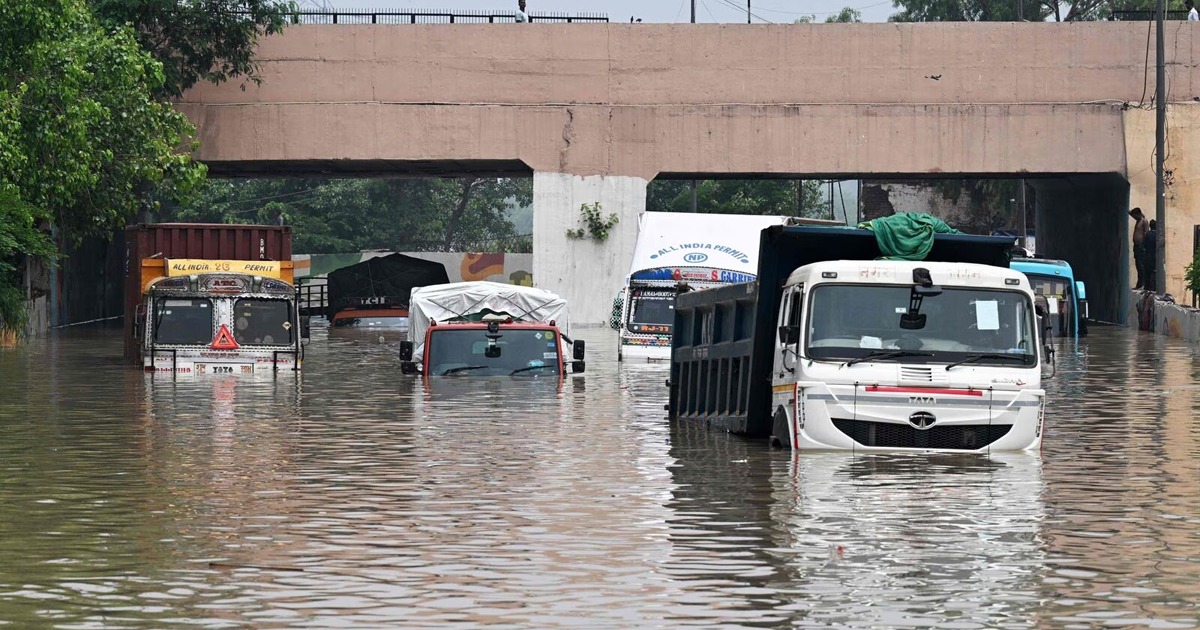Arranged well Unlike Delhi, Noida avoids water-logging
By Bricksnwall | 2024-06-29

Authority in Noida According to the CEO, all
stormwater drains were cleaned well ahead of the rainy season, and any holes in
the plans for handling water-logging were remedied.
Although there was waterlogging in some areas of
Noida on Friday morning due to two hours of heavy rain, it was not quite as bad
as what happened in Delhi. Experts claimed that better designed infrastructure,
such as a network for stormwater drainage, the scientific design of
underpasses, and a planned sewer network, helped Noida avoid the flooding and
chaos that Gurugram and Delhi saw on Friday.
While the roadways and underpasses in Delhi and
Gurugram were completely inundated with precipitation, the unceasing rains in
Noida's sectors 57, 58, 59, and 62 merely resulted in normal levels of
water-logging.
"Noida, like Chandigarh, is a planned city;
Gurugram and Delhi are not." The remaining areas of the nation's capital
did not grow according to a planned plan, with the exception of Lutyens' Delhi.
Even the development of Gurugram was fragmented. According to Atul Gupta, the
president of the Uttar Pradesh Architects and Town Planners' Association's
Noida zone, "The authority acquires agricultural land in bulk, develops
roads, drainage and sewage network, and other infrastructure, anticipating the
needs for the next 100 years or more, and then allots land to realtors or
individuals."
Gurugram adheres to a separate paradigm that
frequently results in municipal chaos, while Delhi is expanding on its own to
meet demand without first establishing even the most basic civic facilities in
the majority of districts, according to Gupta.
Gurgram did not adhere to the Noida model. There, a
builder buys lands for houses, gets a licence from the state government, and
begins development before infrastructure like roads and drainage is installed,
creating a future nightmare for the community. The circumstances in Delhi.
Without a suitable drainage system to manage rainfall, unauthorised building
and commercial growth are common in Delhi's urban villages, according to Gupta.
Town planner and private architect Deepak Agarwal
stated that it is unjustifiable to compare Noida, Gurugram, or Delhi because
each city has a completely different geography and population density.
In Gautam Budh Nagar district, there are about
450,000 registered cars, and on Noida roads, about 550,000 cars drive every
day. On the other hand, Gurugram has one million registered cars and adds
roughly 100,000 new ones annually. According to Agarwal, there are more than
10.2 million registered cars in Delhi.
Whereas Noida is positioned between two rivers,
Gurugram is situated between hills. Rainwater consequently easily enters the
two rivers through the city's fourteen main drains. In order to prevent
waterlogging in low-lying regions, the Noida authority also builds water pumps
to remove rainfall, according to Agarwal.
The Noida Authority is a separate, one-stop shop
that designs highways, underpasses, well-kept parks, elevated roadways, sewers,
and drains.
For the past two months, we have been conducting
site checks throughout the city to verify the cleaning of stormwater drains. In
addition to de-silting the drains, we installed filters to get rid of plastic
and other debris that clogs them and results in water logging. In addition,
water pumps have been built at 14 low-lying locations as well as underpasses to
prevent traffic disruptions during rainy seasons. The reason for the
water-logging complaints we received from sectors 57, 58, 61, and 62 is that
Khoda rainfall floods into Noida. To ensure that residents do not experience
any problems with water-logging, we are resolving any difficulties that may
arise, stated Lokesh M.
Source: Hindustan Time




